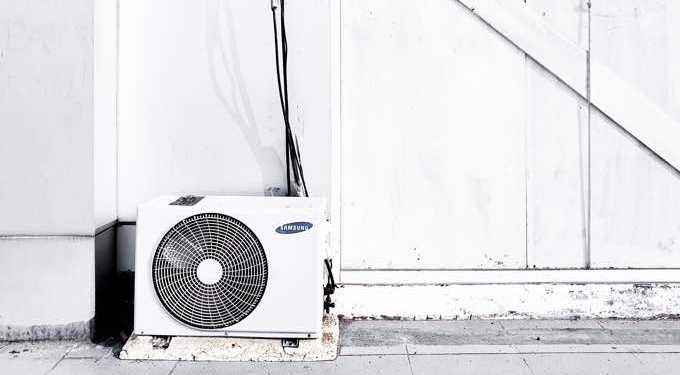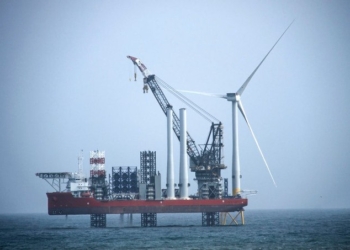
As the temperature rises, the demand for energy also increases as more people around the world find it necessary to install aircon at home or at the office. Yes, a growing number of home and office owners use solar panels to power up their aircons and other appliances. But it’s undeniable that a huge portion of the world’s electricity still comes from fossil fuel-powered turbines with high carbon emissions. And we know that high carbon emissions is one of the leading causes of climate change.
With the growing concern about climate change, finding ways to lower carbon emissions also becomes ever more compelling. In fact, this is one of the leading drivers of the invention of energy saving air conditioners, home appliances, and devices. Energy-efficiency is at the core of this innovation.
What is energy-efficiency and how it can help lower carbon emission?
Energy-efficiency is such a big buzzword, be it in business, politics, and in households. As applied in daily living, this concept promotes the reduction of greenhouse gas emissions and energy use while maintaining the same level of quality of life and productivity. Among religious communities, this topic is also associated with environmental protection and stewardship.
In a study called Freezing in the Tropics: ASEAN’s Air-con Conundrum, the UNFCCC discovered that the household energy use could spike to up to 64% by 2040 if the use of conventional aircon cooling system continues. The study also points out that the use of the new and energy-efficient aircon helps reduce the demand for electricity derived from carbon-powered, fossil-fueled turbines.
Ultimately, the growing demand for aircon should be paired up with a better awareness on energy usage. Specifically, the public needs to be aware of the difference between conventional and energy-efficient aircon units.
The looming threat of global warming is reason enough to switch from conventional to renewable electricity sources to renewable ones. Add to that the potential savings one can make in a month just by using aircon units and appliances with low energy requirement.
How can you tell if you’re buying or using an energy-efficient air conditioner?
If you have plans on buying an aircon unit, the wisest thing to do is to opt for a unit that’s energy-efficient. Here are the ways you can tell that you picked a good one:
- Check the features. Energy-efficient aircon units are usually equipped with programmable temperature control, energy-saving settings, and Wi-Fi enabled controls. These features allow the user to set the time for the unit to automatically turn or off, as well as adjust the temperature remotely using a smartphone. Aircon fitted with inverter tech is also a practical one to get. It draws just enough energy to power it up and can regulate its own temperature by automatically turning off or on.
- Refer to the ratings. The easiest way to assess an aircon unit is to look at its seasonal energy efficiency rating (SEER), Energy Star certification, and energy efficiency rating (EER) rating. EER measures the unit’s peak cooling time efficiency. Meanwhile, SEER measures the cooling pattern or a unit different seasons or temperatures.
- Choose the right size. When looking for an air conditioner to buy, choose a unit that’s of the right size for your place. Why so? Having an oversized aircon in a small house could lead you to pay more for excess energy. You only need a unit that will effectively remove the humidity and keeps the indoor temperature comfortably cold.
- Decide on the best aircon type to buy. Consider your location and the weather fluctuations you’re going to experience usually for the entire year. This will guide you whether to buy a split air conditioner or packaged A/C system. Recent innovations, such as inverter air con, solar-powered AC, and Wifi-enabled units, are also worth considering for their low energy requirement.
Aircon has now become a necessity, especially in tropical and humid countries. But this doesn’t mean you have to allocate way more than the usual amount for your monthly electricity bill. By opting for energy saving air conditioners, you can maintain your quality of life at home without compromising your budget. Most importantly, you don’t have to face the guilt of increasing your carbon emission or footprint if you use those recently released energy-efficient units.
Sources:
- https://callapollo.com/reducing-your-carbon-footprint-through-hvac/
- https://www.energy.gov/energysaver/home-cooling-systems/air-conditioning
- https://unfccc.int/news/more-energy-efficient-air-conditioning-required-for-climate-goals
- https://www.theguardian.com/environment/2012/jun/08/energy-efficiency-carbon-savings
- https://www.thespruce.com/energy-saving-window-air-conditioners-1152163
- https://www.constellation.com/guides/appliances/energy-efficient-air-conditioners.html
- https://www.jerrykelly.com/blog/what-are-the-features-of-an-energy-efficient-air-conditioner
















